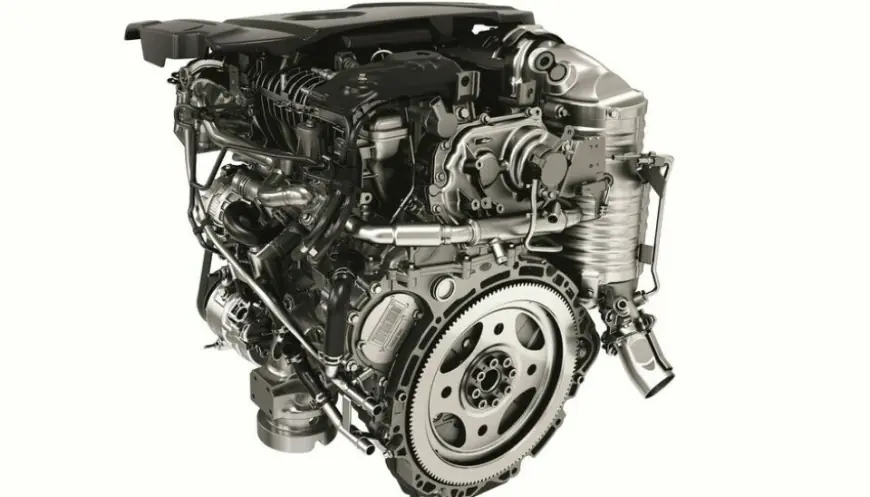Unlocking the Secrets of the Range Rover Engine: Power, Efficiency, and Innovation
The Range Rover Evoque Engine is eminent for its fusion of performance, luxury, and rugged capabilities. Anyhow, just like any high-performance

The Range Rover engine lineup is known for its blend of power, efficiency, and cutting-edge technology. Over the years, Land Rover has developed a range of engine options designed to meet the diverse needs of drivers who demand high performance, fuel efficiency, and luxury. Here’s a breakdown of the key elements that make Range Rover engines stand out:
1. Powerful Engine Options
Range Rover offers a variety of engines, from V6s to V8s, both in gasoline and diesel variants. These engines are designed to deliver impressive horsepower and torque, ensuring that the Range Rover can tackle various terrains with ease.
- V8 Supercharged Engines: The Range Rover’s top-of-the-line engines often come in the form of supercharged V8s. These engines are capable of delivering up to 518 horsepower and 461 lb-ft of torque, making them well-suited for quick acceleration, off-road capability, and towing heavy loads.
- V6 Engines: The V6 engines offer a more balanced approach, providing ample power while being more efficient than their V8 counterparts. With a range of outputs, these engines deliver a great mix of performance and fuel economy.
- Hybrid Options: More recently, Land Rover has introduced hybrid powertrains, offering a combination of internal combustion engines and electric motors. These systems provide additional power while improving fuel efficiency and reducing emissions.
2. Fuel Efficiency and Emissions
Modern Range Rover engines are designed with fuel efficiency in mind, especially given the push towards sustainability and reduced emissions. Innovations like mild-hybrid systems, which use a small electric motor to assist with acceleration and braking, help to reduce fuel consumption.
- Mild-Hybrid Technology (MHEV): Available in certain Range Rover models, the MHEV technology recaptures energy during braking and uses it to power systems like the engine’s start-stop functionality, contributing to better fuel economy.
- Plug-in Hybrid (PHEV): The introduction of PHEV systems provides an option for drivers to use the vehicle in electric-only mode for short distances, with the ability to switch to gasoline for longer trips, which makes these models more fuel-efficient and environmentally friendly.
3. Innovation and Engineering Excellence
Range Rover Engines has always pushed the envelope in terms of engineering, ensuring that its engines not only provide power but also deliver refined performance across various conditions.
- Ingenium Engines: These are a range of advanced 4-cylinder and 6-cylinder engines that are designed and manufactured by Jaguar Land Rover (JLR). They combine lightweight materials with efficient turbocharging and hybridization, optimizing both power output and fuel efficiency.
- Torque Vectoring: Range Rover engines are often paired with advanced drivetrain technologies like torque vectoring, which ensures that power is distributed efficiently to each wheel, improving both on-road stability and off-road capability.
- Terrain Response System: This system is designed to adjust the engine’s power delivery and traction control based on different driving environments, whether you're driving on sand, snow, mud, or rocky terrain. The engine adapts in real-time, enhancing the vehicle's overall driving experience.
4. Performance and Off-Road Capability
The hallmark of the Range Rover is its ability to combine luxury with rugged off-road capability. With its advanced suspension systems and powerful engines, the Range Rover excels in tough conditions, offering superior comfort on both paved roads and challenging trails.
- Adaptive Dynamics: This system continually monitors vehicle movement and adjusts the suspension to optimize comfort, stability, and handling. This ensures a smooth ride no matter the terrain, whether you’re navigating a mountain pass or cruising down a highway.
- Towing Capacity: With a range of powerful engines, the Range Rover can tow heavy trailers, boats, and other large loads with ease. The towing capacity, which can reach up to 7,716 pounds (3,500 kg) depending on the engine, makes it ideal for those who need a luxury SUV capable of hauling significant weight.
5. Future of Range Rover Engines
Land Rover continues to innovate in engine technology, focusing on sustainable performance and reducing environmental impact while maintaining the powerful driving experience that Range Rover owners expect.
- Electric and Hybrid Future: As the automotive industry moves towards electrification, Range Rover is expected to continue expanding its lineup of hybrid and fully electric vehicles. The company has already committed to offering an all-electric Range Rover by the end of the decade.
- Advanced Engine Technologies: Future Range Rover models may feature even more advanced technologies like hydrogen fuel cells or further developments in electric drivetrains, combining sustainable energy with high-end luxury and off-road performance.
Conclusion
The Range Rover engine range is a testament to Land Rover’s commitment to blending power, efficiency, and innovation. With robust performance capabilities, cutting-edge hybrid technologies, and a focus on environmental sustainability, Range Rover’s engines continue to set the standard for luxury SUVs. Whether you’re looking for raw power, off-road capability, or a more eco-conscious option, the Range Rover lineup offers a solution to suit a variety of needs and preferences.
What's Your Reaction?
 Like
0
Like
0
 Dislike
0
Dislike
0
 Love
0
Love
0
 Funny
0
Funny
0
 Angry
0
Angry
0
 Sad
0
Sad
0
 Wow
0
Wow
0












































